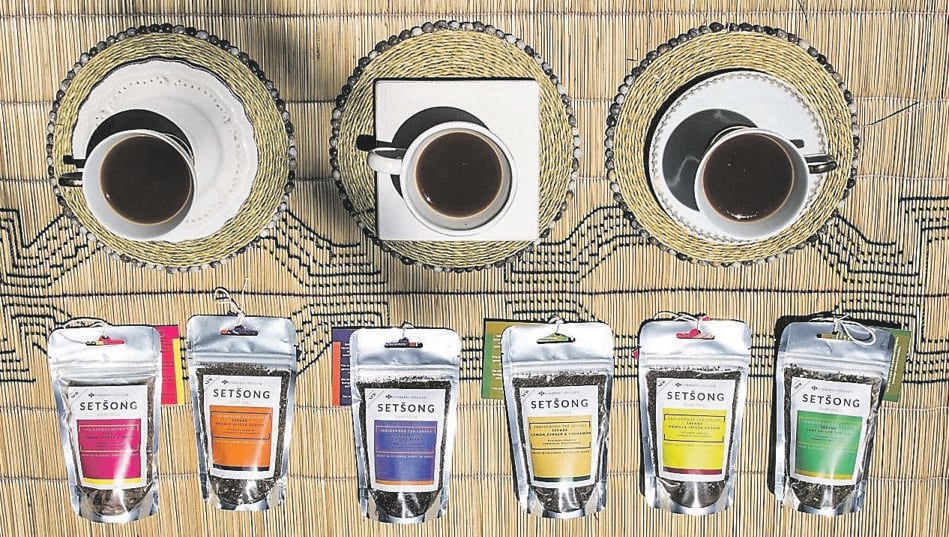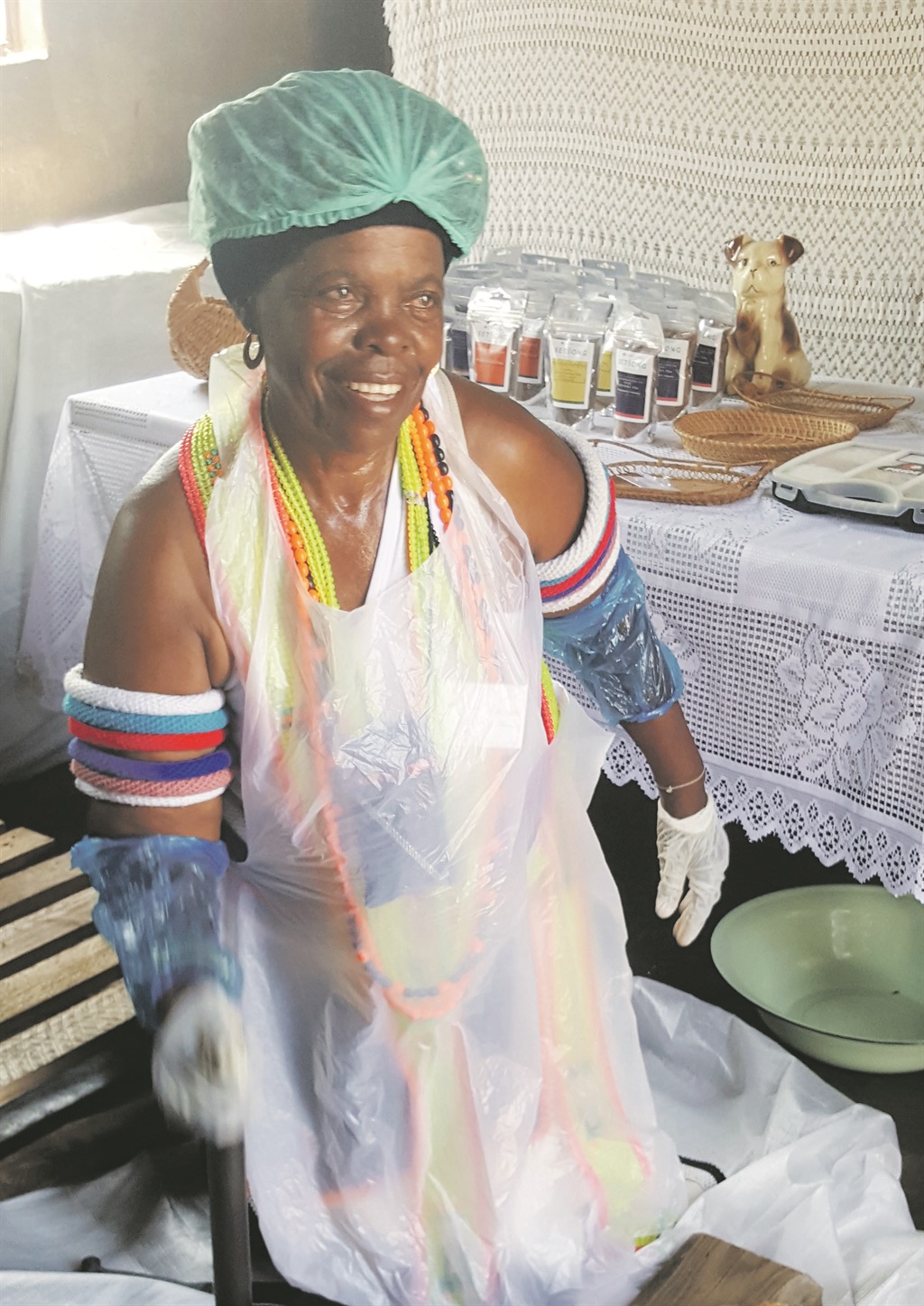
This feature is part of a journalism partnership called Our Land, between City Press, Rapport, Landbouweekblad and Code for Africa, to find the untold stories, air the debates, amplify the muted voices, do the research and, along the way, find equitable solutions to South Africa’s land issue.
Anna Trapido visits the tea makers of Sekhukhune district, who are honouring their ancestors’ traditions and forging a thoroughly modern global business
Every sip of Setšong tea is deliciously infused with community collaboration and epicurean empowerment.
Based in the villages of Ga-Phaahla and Ga-Matlala in the Sekhukhune district, Limpopo, the company’s motto is “Bapedi A re Boeleng Setšong ka Sepedi”, meaning “Let us go back to our culture”, which is what co-founder Retang Phaahla has done.
Retang says: “I grew up in Pretoria and went to school in Centurion. My mum is Zulu, but my dad is from Ga-Phaahla, so when I was small we used to go there a lot for school holidays. But over time our lives got very urban and centred around Gauteng. Rural life was increasingly distant.
“Then my mum, Nondumiso Phaahla, retired and had a real sense that one day she was going to need to be buried in Limpopo. She couldn’t imagine being buried in a place where people didn’t know her. So she moved there in 2012.”
The plan was for Nondumiso, who describes herself as “a Zulu woman who is becoming Pedi day by day”, to relocate and rest amid 15 hectares of inherited family land.
Part of the resting process involved taking tea with her new neighbours, which is how she discovered the region’s diya root and tepane leaf heritage herbal teas.
Local people were initially reluctant to serve the newcomer their wild harvested traditional tastes.
“I had to humble myself and prove that my interest was sincere. It took time because there was a widespread association of such indigenous teas with poverty, but right from my first sip I was amazed and delighted by the delicious sweetness of the tepane and the stimulating cleansing qualities of diya infusions. I found them infinitely superior to anything I had ever had before.”
Nondumiso’s previous experience in community development gave her the skills to facilitate a broad-based alliance of traditional healers, agroecologist academics, subsistence farmers, foragers, youth community activists, village elders, millennial hipsters and ancestral spirits.
Together, this team has created a thriving craft tea company that won this year’s Johannesburg Chamber of Commerce and Industry (JCCI) Global Business Accelerator Award and recently applied for EU organic certification through the Deutsche Gesellschaft für Internationale Zusammenarbeit.
Shared interests and mutual respect have allowed unlikely partnerships to flourish within Setšong.
Academics at the University of Limpopo have provided scientific support for traditional healer indigenous understanding of tepane and diya’s health-giving properties.
Village elders have worked with Retang to develop a range of trendy tea blends that remain true to original infusions, but also appeal to urban, hipster, chai tea-drinking, modern markets.
Community ancestors have been consulted at every stage.
As traditional healer and Setšong treasurer, Stephina Seopela says: “We must always include the ancestors in the project’s development. They are part of the decision making. We go on our knees, brew beer, honour them and talk to them. We ask for permission to make any changes. These plants are here by their grace.
“If we work with the companies in Johannesburg and overseas they must know what is happening. The ancestors are pleased with the changes. They are happy for our traditional roots and herbs to be consumed all over the world. They approve of the way that Setšong is transforming our community. They know that we respect the land and the plants that they have set forth.”
And indeed they do. While Setšong has Limpopo department of agriculture permits to sustainably wild harvest, the company is working with the Agricultural Research Council and the local Ntombi Agricultural College to plant, promulgate and preserve the legacy for future generations.
Setšong’s economic and social impact has been slow, but steady.
Individual community members collect and process plants all year round.
Amounts paid are determined by the output.
While it is mainly village elders who create the product, younger people are increasingly involved in direct selling. Relationships between young and old are altering along the way.
Operations manager Elizabeth Moimana says: “They buy from us and they go to Marble Hall and sell on to the shops there. Now that they can see the business sense of traditional teas, the young people treat us with much more respect.”
Further afield, the product is also available at Johannesburg’s Bryanston Organic Market, the Rosebank Market and selected supermarkets in Gauteng.
Sipping her tepane tea, Nondumiso observes that “it is the elders who hold indigenous knowledge and within such knowledge is the key to community empowerment. I thank God for giving me the courage to leave city life and join the villagers to learn and understand their cultural values and traditions. In those traditions is ancient wisdom with modern applications”.
As part of the JCCI export incubator project, Setšong is set to start exporting next year. The ancestors have been informed, so it’s all systems go for global supply.
To buy Setšong teas, email info@setsong.co.za, or go to setsong.co.za
In partnership with City Press, Rapport and Landbouweekblad, as part of this year’s Our Land journalism project, Code for Africa has built an online tool that incorporates the available data sets on land ownership and use.
This tool, which is by no means complete, is free to access by anyone interested in accessing the information for further investigation.
The tool – https://land.hurumap.org – collates four data sets – Agrids 2018; Land Audit Report 2017; this year’s statistical report for selected service delivery programmes of the department of rural development and land leform; and the Afrobarometer Round 7: Survey 2018 – and is updated as new data becomes available.
Our Land was designed to tell the success stories and amplify the voices of South Africans as we grapple with the all-important land debate.
This digital tool is another way for all of us to contribute to the available data so that decisions made on our behalf are taken using accurate and complete information. The tool is designed to invite collaboration between journalists, civil society and government, and we invite all comments about it and additions to it. Please email us on ourland@citypress.co.za or send an SMS to 35697 using the keywords OUR LAND. SMSes cost R1.50




 Publications
Publications
 Partners
Partners










